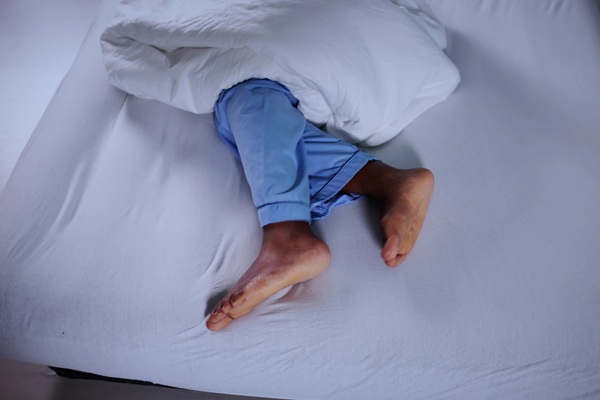How a Psychiatrist Can Help You Manage Anxiety Disorder Symptoms

Everyone experiences occasional anxiety, but an anxiety disorder involves persistent, excessive worry and physical symptoms that can disrupt daily routines, relationships, and overall well-being. If left untreated, these symptoms can intensify, impacting mental and physical health. Seeking help from a psychiatrist can be a significant first step toward effectively managing anxiety disorder symptoms and getting your life back.
Understanding Anxiety Disorders and the Role of a Psychiatrist
Anxiety disorders encompass a range of conditions, including generalized anxiety disorder (GAD), social anxiety, panic disorder, and specific phobias. Each type presents unique symptoms but shares common elements: overwhelming worry, physical tension, and impaired functioning. Psychiatrists specialize in understanding and treating these disorders by using medication. Often, a psychiatrist will suggest therapy and lifestyle recommendations in addition to medication. They are medical doctors who bring clinical expertise to identify the specific type of anxiety disorder, as well as any underlying factors, such as genetic predisposition or life stressors, that may contribute to the condition.
Medication Management for Anxiety Disorders
Medication is often a requirement for managing anxiety disorders. Because they are medical doctors, psychiatrists are uniquely qualified to prescribe and monitor medications, such as antidepressants, benzodiazepines, or beta-blockers, which help to treat anxiety disorders. Medications can help regulate brain chemistry, making it easier for individuals to manage their symptoms and engage in daily life. A psychiatrist will work closely with the patient to determine the most appropriate medication, adjusting the dosage or type to achieve optimal results with minimal side effects.
While medication is not always necessary, it can be a crucial tool for patients who struggle with severe symptoms. By alleviating physical and emotional discomfort, medication allows patients to focus more effectively on therapy and lifestyle changes that support long-term recovery.
Additional treatment recommendations
Some of the most successful treatment plans for anxiety disorder involve a combination of medication, therapy, and lifestyle adjustments. Though their key role is diagnosis, prescribing, and monitoring medication, a psychiatrist may recommend the following.
Behavioral or talk therapy
A psychiatrist may refer patients to a psychologist for therapy to complicate the medication. One effective therapy for anxiety disorders is cognitive-behavioral therapy (CBT), which helps patients understand and change the patterns of thought that contribute to anxiety. CBT teaches individuals to identify and reframe irrational fears or unhelpful thought patterns, reducing their hold on the mind. Additionally, a psychiatrist may recommend exercises in exposure therapy, a method particularly useful for phobias or social anxiety, where patients learn to face their fears in a safe, controlled environment. Over time, this exposure reduces the intensity of anxiety-provoking situations and empowers the individual to respond with greater resilience.
Lifestyle Recommendations
Certain lifestyle changes, such as exercise, sleep hygiene, and dietary adjustments, support mental health and enhance the effectiveness of treatment. For example, regular physical activity can naturally reduce anxiety by releasing endorphins, while quality sleep improves overall resilience to stress. Psychiatrists can help patients develop coping strategies, like relaxation techniques and healthy routines, that build emotional resilience and provide practical tools to manage anxiety daily.
Hope for those struggling with anxiety
Are you afraid that your level of anxiety is not normal? An untreated anxiety disorder could harm your emotions mental and physical health. Let us help. Call today to learn more about managing anxiety disorder symptoms.
Request an appointment here: https://www.hopetmsofny.com or call Hope TMS and Neuropsychiatric Center at (646) 578-8152 for an appointment in our New York office.
Check out what others are saying about our services on Yelp: Anxiety Disorder in New York, NY.
Recent Posts
Restless leg syndrome can make evenings difficult by creating an urgent need to move the legs when the body tries to rest. Considering symptoms like crawling or pulling often intensify at night, sleep quality can drop, and daytime energy can follow. With the right support, many people can manage their symptoms and get a good…
PTSD syndrome can shape your daily experiences in significant ways, from your emotional balance to your physical health and personal stability. Symptoms of PTSD can become an invisible burden that affects your routine and interpersonal connections. While these symptoms vary from person to person, they can impact every corner of your life without the right…
Adult ADHD therapy supports individuals navigating challenges with focus, time management, and emotional regulation. While attention deficit hyperactivity disorder, or ADHD, is commonly diagnosed in childhood, its symptoms can persist into adulthood, often interfering with careers, relationships, and daily tasks. Professional therapy offers a structured approach to managing these difficulties and building long-term strategies for…
Transcranial magnetic stimulation, also known as TMS treatment, is an innovative and noninvasive therapy for several mental health conditions. By using magnetic fields to stimulate specific areas of the brain, TMS is an effective treatment for cases where traditional methods have provided little to no relief. It is important to know which mental disorders are…


